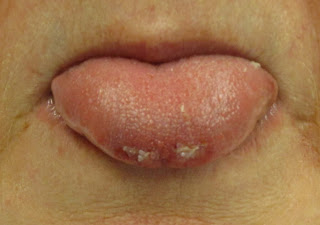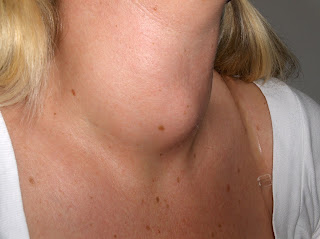 |
Anxiety and depression can occur at the same time. Although each condition has its own causes.
Photo by Fernando @cferdo on Unsplash |
Myth and Stigma of Anxiety, Depression and Other Mental Illness
Stigma is when people around view us in a negative way because we may have distinguishing characteristic or personal trait that is thought to be or actually is, a disadvantage. Most unfortunately negative attitudes and beliefs toward people who have mental health condition are common.
Stigma can lead to discrimination. Discrimination may be obvious and direct, such as someone making a negative remark about our mental health or on our treatment. Or it may be unintentional or subtle, for example someone is avoiding us because the person assumes we could be unstable, violent or dangerous due to our mental illness.
There are numerous myths about depression, anxiety and other mental illnesses that are very prevalent in our society. Beliefs that mental illness is a sign of weakness, is untreatable, and can be conquered through sheer willpower prevent people from seeking treatment. Beliefs that mental illness is simply a result of bad parenting, a chemical imbalance, an improper diet, or not having found religion lead people to seek unhelpful - and sometimes harmful treatments. Beliefs that mental illness is a sign of de-valence, is associated with violence and renders people incapable of healthy relationships lead people avoid those who are struggling.
With such myths and stigma rampant in society, it is important that we educate ourselves on truth about mental illness, so that we are not making decision on them and further perpetuating them.
Overview - Anxiety and Depression
Anxiety and depression can occur at the same time. Although each condition has its own causes. They are like flip sides of same coin. Nancy B Irwin PsyD says
Being depressed often makes us anxious, and anxiety often makes us depressed.
The following symptoms of Anxiety and Depression are commonly seen and overlap such as
- Difficulties in sleep or sleeping problem
- Concentration deficiency
- Irritability
But there are several key factors that distinguish Anxiety and Depression.
What is Anxiety ?
The American Psychological Association defines Anxiety as
an emotion characterized by feelings of tension, worried thoughts and physical changes like increased blood pressurePeople with Anxiety disorders usually have recurring intrusive thoughts or concerns. They may avoid certain situations out of worry. They may also have some physical symptoms such as sweating, trembling, dizziness, or a rapid heartbeat,
While Anxiety can cause distress, it is not always a medical condition.
When an individual faces potentially harmful or worrying triggers, feelings of anxiety are not only normal but necessary for survival.
Since the earliest days of humanity, the approach of predators and incoming danger sets off alarms in the body and allows evasive action. These alarms become noticeable in the form of a raised heartbeat, sweating, and increased sensitivity to surroundings.
These increased sensitivity causes production of significant quantities of chemicals which are known as stress hormones namely cortisol, adrenaline, and non-adrenaline. The obvious fall out of these reactions are increased heart rate, heightened muscle preparedness, high blood pressure, sweating and preparedness. These physical changes alert us either to take the event forward or withdraw from it, which is known as "flight or fight" response.
In today's demanding world, we tend to get stressed out frequently, anxieties now revolve around work, study, money, lifestyle, family life, health and other crucial issues that demand our attention without necessarily requiring the flight-or-fight reactions.
The nervous feeling can easily creep on us easily before an important life event or during a difficult situation and it is a natural reaction. It can still be essential for survival. Normal anxiety is an emotion that we all get when we're in stressful situations.
Anxiety Disorder
However the duration or severity of an anxious feeling can sometimes be out of proportion to the original trigger or stressor. Physical symptoms like increased blood pressure and nausea, may also develop.These responses move beyond anxiety into an anxiety disorder.
The American Psychological Association describes a person with anxiety disorder as
having recurring intrusive thoughts or concerns.
Once anxiety reaches to a level of a disorder it can interfere and create hurdles in daily activities and life.
In her TED talk Olivia Remes talked about Anxiety, various Anxiety Disorders and how to cope with Anxiety. Here is the link .
Physical symptoms and behavioral changes caused by generalized anxiety disorders are :
- Fatigues
- Concentration deficiency and memory failures
- Muscle tension and pain
- Increased pulse rate
- Grinding teeth
- Restlessness
- Insomnia and falling asleep
Emotional Symptoms are
- Irritability
- Uncontrollable fear and worry
- Dread feeling
- Panic
What is Depression ?
WHO - World Health Organization defines Depression as
Depression is a common mental disorder, characterized by persistent sadness and a loss of interest in activities that you normally enjoy, accompanied by an inability to carry out daily activities, for at least two weeks.If the symptoms stay for at-least two weeks then an individual may be diagnosed with depression.
In addition, people with depression normally have several of the following: a loss of energy; a change in appetite; sleeping more or less; anxiety; reduced concentration; indecisiveness; restlessness; feelings of worthlessness, guilt, or hopelessness; and thoughts of self-harm or suicide.
Depression is treatable, with talking therapies or antidepressant medication or a combination of these.
Some forms of depression are slightly different or they may develop under unique circumstances. Those are :
- Dysthymia or Persistent Depressive Disorder - It's a major depression, symptoms last for more than two years
- Postpartum Depression - Some women experience various syndromes of anxiety and depression prior to, during and post delivery. The feelings of extreme sadness, exhaustion that accompany postpartum may cause serious health problem for both mother and baby.
- Psychotic Depression - It occurs when an individual has major depression along with some forms with psychosis such as hallucinations, delusions, feeling of poverty, guilt or illness.
- Seasonal Affective Disorder - When some depressive syndromes become evident with the season fro example winter and pass away with the arrival of following season. It is very typical in nature.
- Bipolar disorder - It is severe and different form of depression. An individual can experience episodes of extremely low mood that are very similar to major depression then it is called bipolar depression. A person with a bipolar disorder experiences extreme high-euphoric and irritable moods called mania or a less severe called hypomania.
 |
Symptoms of Depression
According to American Psychiatric Association depression symptoms may vary from mild to severe and can include :
- Feeling Sad or having a depressed mood
- Loss of interest or pleasure in activities once enjoyed
- Changes in appetite - weight loss or gain unrelated to dieting
- Sleeping trouble or excessive sleeping
- Fatigue and loss of energy
- Increase purposeless physical activities or viable slowed movements and talking
- Feeling hopelessness or worthlessness or guilty
- Difficulty in concentration, thinking or making decision
- Thoughts of death or suicide
Apart from above some medical conditions such as thyroid problems, vitamin deficiency, brain tumors etc may trigger depressive symptoms.
Depression affects approximately 1 in 15 adults i.e 6.7% in any time across the world. Affected teens are slightly higher. Women are more likely than men to experience depression. Some studies show that one third of women experience a major episode of depression in their lifetime.
Not every one with depression experiences all the symptoms. It varies person to person.
Depression and anxiety put together is the leading cause of disability worldwide and is a major contributor to the overall global burden of disease.
Causes of Anxiety and Depression
The causes of Anxiety and depression are complicated. Any cause may occur once, few cases may occur simultaneously, one cause may trigger other causes and more importantly it varies person to person. It may be common for some cases or sometimes it is unique.
Possible causes include :
- environmental stressors such as difficulties in studies, at workplaces , relationship problems, family issues.
- genetics
- medical factors such as a symptom of different disease, side effect of medication or the stress related to prolonged illness
- brain chemistry - misalignment of hormones and /or electrical signals of brain.
- substance withdrawal
Self-help Test
Few self help tests are available online which may be useful to identify signs. We know what is normal for us. If we find ourselves experiencing feelings and behaviors that are not typical. or if something seems off, these might be a sign we need to seek help from experts. It is always better that we are open with our feelings and behaviors in front of healthcare providers, so that symptoms are properly diagnosed and treatment can start as early as possible.
However online self-diagnosis are helpful to understand what may be happening but the results are not a replacement of a professional diagnosis from our doctors. There are several conditions that may be impacting our conditions, a profession health care provider may be the best option to consider.
The listed sights provide self-help diagnosis of Anxiety and Depression
Anxiety Test
Depression Test
Depression and Anxiety Test
Risk Factor -
Teens across the world are increasingly facing anxiety, depression and taking suicide as a remedy for their distress. Problem is, most of the cases we cannot judge a person, who is thinking to commit suicide unless the person has a history of failed attempt(s) of the same.
No Stigma - let us take it forward to a frank discussion
If you have ever considered committing suicide or have attempted suicide , you are certainly not alone. It is also amazing, that strong and even famous people ( think of Anthony Bourdain ) have done the same. But the question is how can you seek help for your suicidal thoughts, while avoiding the label of having 'mental health problems , that could follow you around the rest of your life ?
You may be feeling this way, taking your life can seem like the best way to rescue yourself from an overwhelming emotional storm.
May be you are experiencing unbearable health conditions, burden of financial debts, very bad relationship issues, or someone giving you enormous trouble that you feel that you can't bear it anymore, you may be feeling some supernatural forces working around you, fearing you won't have a meaningful life, everything is closed for ever, you are unable to sleep for months after months, possibly you are wondering another day alive have no meaning.
 |
fearing you won't have a meaningful life, everything is closed for ever, you are unable to sleep month after month
Photo by Megan
te Boekhorst on Unsplash
|
Perhaps you have been to therapists, treatment centers, spiritual gurus and still can't get out of your destructive thinking patterns. You might feel the same or even worse from focusing on your problems, which feeds them with energy and makes them even bigger. You are feeling that you are exhausted.
Yet even at your darkest moments, you don't want to be a burden to your parents, relatives, friends who love you by telling them about your suicidal thoughts.
You would hate to cause them to worry, support you financially when you can't work or sign or feel like failures for not knowing how to help.
You may have been told or understood somehow that these are signs of a mental health problem, but what if it's really just your emotional baggage that's holding you hostage ?
Think about it, my dear. Your subconscious mind's most important job is your survival. To protect you by warning you about danger what we might call gut feelings, red flags and intuitive messages. And in order to do so, it has to determine what threats to your survival look and feel like. so it relies on its past experience.
Your subconscious stores every experience you have ever had in both your present and past lives plus all the emotions wrapped around them. It stores the emotional experiences of your ancestors too, since they're part of your DNA. That's a lot of lifetimes of emotions to be carrying around !
Whether it's anger, fear, sadness, joy, love or happiness, these stored emotions have a snowball effect, get bigger each time you feel them. The positive emotions are great, it's the negative ones that destroy your confidence. and cause problems. You need the lesson learned from negative experiences not the baggage.
How to free yourself from anxiety, depression and suicidal thoughts ?
Take two or three deep breath slowly and imagine something that upset you recently, how much emotion you felt about it. How could it had been different if you only experienced half or part of that emotion ? Wouldn't that be easier to handle ?
Of-course that would be easy! That is how you deserve to live your life.
You can, if you heal your subconscious mind and release all that pent-up emotional baggage you've been carrying around with the help of an expert healer.
And most importantly it does not take years, months or weeks to release the negative emotional snowballs that cause your suicidal thoughts. It just take few hours and can even be done over telephonic conversation - no mental health stigmas attached.
Rest assured, there is no need to know where the emotions originated (or believe in past lives) to release them. Your subconscious mind has all of that information and will take you exactly where you need to go to heal them up.
Nature have provided us tools that help us to release our emotional baggage, crying, laughing, singing and talking.
Just talk, speak out, tell your problems to someone close to you. You will feel immediate relief. If you are unable to talk then sing your favorite songs - if it is not possible then listen to good music. Here is one of them.
Anxiety and Depression - Self Help
In some cases, an individual can treat anxiety and depression disorders at home without clinical supervision. However this may not be effective for extreme cases and it is also to be taken into consideration that the willingness of the individual is positive.
There are several exercises and techniques that are available to cope with anxiety and depression. Some of them are :
Stress Management
Learning to manage Stress can help to limit potential triggers. In today's world stressful events are inevitable and we cannot avoid those events but certainly we can practice to look at them differently and make ourselves ready to fight diligently without harming our physical and mental health. A complete guide is available here > Stress: Facts, Causes and Remedies
Relaxation Technique
Relaxation techniques can improve your quality of life and may reduce symptoms of depression and anxiety. Find an activity that feels right for you and you can practice regularly, such as:
- yoga
- meditation
- breathing exercises or pranayam
- long bath
- swimming
- walking in nature
- music
- massage
Lifestyle Management
- good food-habit
- habit to take early bed
- controlling time on Mobile Phones, TV, Computers
- Reading good books - It's a great way to relax. There’s even research that shows that reading books on spirituality or psychology may boost your mood. A book for example Autobiography of a Yogi - you can get online link here > Paramhansa Yogananda - A Oneness of Silence
Support Network
Talk with known people who are supportive. Support group services may also be available in the locality and online.
like
Vandrevala Foundation - trained counselors are qualified and are available day and night online
Counseling
A standard way of treating anxiety, depression is psychological counseling. This may be cognitive behavioral therapy (CBT) , psychotherapy or a combination of therapies.
Conclusion
My favorite is Public Confession Therapy which was developed by Oprah Winfrey, sometimes it is also known as Oprahfication.
When we do something wrong or something wrong had happened to us, make a significant impact in our subconscious space. In these types of situation there are two typical reactions that pull in opposite directions.
On the one hand, we might want to hide what we have done or done on us If nobody finds out, then it may feel like we didn’t do it at all or not happened to us at all - which in turn we burden our subconscious mind .
On the other hand, we might just want to confess what we have done wrong or done by others on us. That gets the problem out into the open and helps people to move forward - which does the opposite of the above, means we are able to unload our subconscious burden and feel free.
This is what Oprah does in her shows, helping her guests to unlid the vapor from the subconscious container. The viewers also make themselves acquainted with the guests as if they are also releasing their pain mentally may be to the Universe.
Related Articles in this Blog
 |
 |
 |
 |
 |
 |
 |
 |
 |
 |
 |












No comments:
Post a Comment